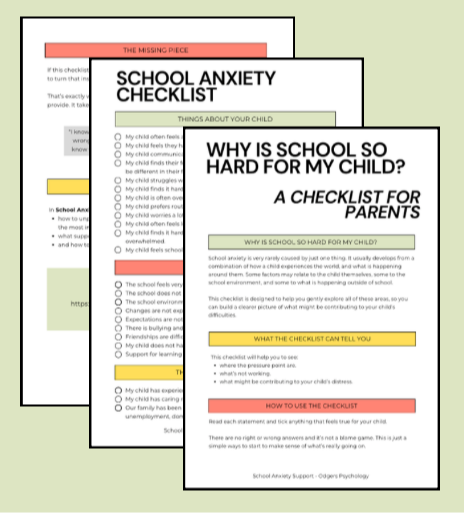Empower your child to manage their worries.
Nov 10, 2025Today I want to talk about how children can learn to manage their emotions and why your calm, consistent support plays such a vital role when they're anxious or overwhelmed.
From a very young age, children are learning when and how to respond to stress by watching and experiencing the adults around them.
The way a child's brain works is partly determined by age and partly by genetics. And we know that children with autism or ADHD can have lots more difficulty than their neurotypical peers in regulating their emotions, and there's probably a biological reason for that. But we also know that the way a child's brain responds to stress, whether they are neurodiverse or neurotypical, is also affected by relationships, experiences, and the environment they grow up in.
Each time the child faces a challenge their brain builds connections that shape their automatic responses. And the wonderful thing is that brains are adaptable. That means with repeated new experiences of safety and empathy, children can develop new patterns of responding to stressful events, even if they've struggled for a really long time.
Children don't learn to calm themselves down on their own. They learn it through us - adults. When we stay calm and present in the middle of their distress, we're helping their bodies and minds come back to balance. This is called co-regulation.
Over time and through many moments of co-regulation, children start to internalise this sense of calm, and that's when self-regulation begins. When they've practiced enough times feeling soothed and safe, they can begin to do it for themselves.
Attuned, empathetic relationships are absolutely key. When adults notice children's emotional state and respond gently by showing them how to calm down, they begin to feel seen, soothed and safe. These repeated experiences of empathy literally rewire the brain to feel calmer and more secure. So every time you help your child calm down, you're doing more than just managing a meltdown. You're helping to actually shape the biology of their brain and their future behaviours.
In a couple of weeks I'll be running a workshop about how to support your child through fight, flight, or freeze that will cover how to put some of the ideas I've talked about today into practice.
In the meantime, I created a free guide that walks you through what to do and say when your child is in fight flight or freeze so you can help them back to calm with confidence. You can download it here.


